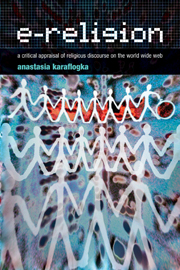6 - Methodology
Summary
Introduction
The diversity and wealth of the existing body of literature suggest that the Internet provides us with a profusion of research areas, by offering an infinite variety of issues, concepts, ideas and perceptions for investigation in both online presences and interactivities.
The question of methodology within the general field of cyberculture studies has, to date, been explored and presented primarily in terms of utilizing the Internet to conduct surveys, to collect data, to publish online survey reports and to study communities, MOOs, bulletin boards (BBs), peoples' online interaction and online social networks (Garton et al. 1999; Mann and Stewart 2000; Jones 1999a).
The currently proposed methodologies for researching either the whole (the Internet), or any of its parts, suffer from the dominance of functionalist perspectives which give prominence to the design of research models that would provide efficient, successful and effective results in the area of quantitative research. The majority of these works, by using the Internet as a data collection and/or publication tool, reduce it to a mere instrument. This, however, has been contested and as Poster (1995b) and others (Dawson and Hennebry 1999; Ward 2000; Mann and Stewart 2000; Markham 2003) have emphasized, the Internet is also a social space, an environment, which has the capacity to initiate new forms of interaction and new types of relations of power between participators. Furthermore, different technologies should not be seen simply as aids to human activity but also as influential forces acting to reshape that activity and its meaning (Winner 1986).
- Type
- Chapter
- Information
- E-ReligionA Critical Appraisal of Religious Discourse on the World Wide Web, pp. 142 - 198Publisher: Acumen PublishingPrint publication year: 2007

